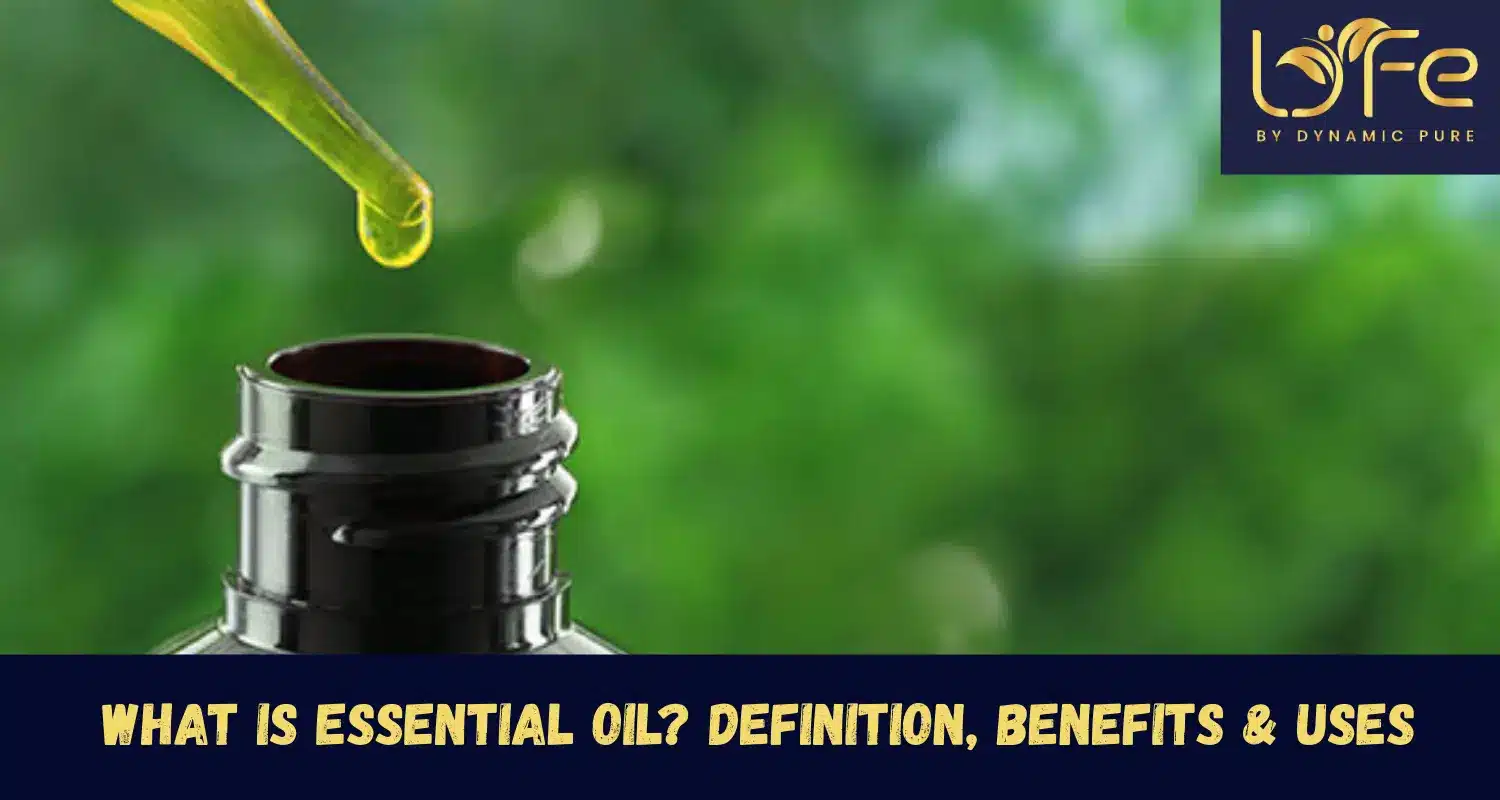What is Essential Oil? Definition, Benefits & Uses

Essential oils have become one of the most talked-about natural remedies in modern wellness. From aromatherapy and skincare to sleep support and pain relief, these concentrated plant extracts are valued for their therapeutic and aromatic properties. But what exactly are essential oils, how are they made, and how can you use them safely?
In this guide, we’ll explore everything you need to know about essential oils, including their history, extraction methods, benefits, and the importance of choosing pure, lab-tested oils.
Essential Oils Defined
Essential oils are highly concentrated extracts derived from plants. They capture the “essence” of the plant—its aroma, natural compounds, and potential therapeutic benefits.
Historically, essential oils have been used for thousands of years in Ayurveda, Traditional Chinese Medicine, and by civilizations such as the Egyptians and Greeks for healing, spiritual rituals, and beauty treatments.
These oils are called “essential” because they represent the plant’s most fundamental fragrance and chemical properties. For example, lavender essential oil carries the plant’s calming floral aroma, while tea tree essential oil delivers powerful antimicrobial activity.
How Essential Oils Are Made
The quality of an essential oil largely depends on how it is extracted. The most common methods include:
- Steam Distillation – Plant material is steamed, and the vapor is condensed to collect oil and hydrosol (floral water). This is the most common method for lavender, eucalyptus, and peppermint oils.
- Cold Pressing – Primarily used for citrus oils like lemon, orange, and bergamot. The rind is mechanically pressed to release oils.
- Solvent Extraction – Used when delicate flowers (like jasmine or rose) cannot withstand heat. This produces absolutes, which are highly aromatic.
Common Uses of Essential Oils
Essential oils are incredibly versatile and can be used in multiple ways:
- Aromatherapy – Diffusing oils such as lavender, eucalyptus, or peppermint to promote relaxation, focus, or respiratory support.
- Skincare & Beauty – Tea tree for blemishes, frankincense for anti-aging, rose for hydration. Always dilute with a carrier oil like jojoba, almond, or coconut.
- Relaxation & Stress Relief – Lavender, chamomile, and bergamot are well-known for calming effects.
- Household Cleaning – Lemon, eucalyptus, and tea tree oils are used in natural cleaning solutions for antibacterial power.
Benefits of Essential Oils
Essential oils are linked to a variety of potential wellness benefits:
- Sleep Support – Lavender, cedarwood, and chamomile oils help reduce anxiety and promote restful sleep.
- Energy & Focus – Peppermint and citrus oils (lemon, sweet orange, grapefruit) may improve alertness and stamina.
- Pain Relief & Recovery – Eucalyptus, rosemary, and ginger oils can ease sore muscles and inflammation.
- Immune Support – Tea tree, oregano, and clove oils contain compounds that support immune defense.
Each benefit depends on the oil, its active compounds, and how it is used—whether inhaled, applied topically (with dilution), or used in DIY blends.
Essential Oils vs Carrier Oils
It’s important to note that essential oils are not the same as carrier oils.
- Essential Oils – Highly concentrated, volatile plant extracts (must be diluted before skin use).
- Carrier Oils – Base oils like jojoba, sweet almond, or coconut that dilute essential oils for safe application.
For example, tea tree oil should always be diluted in a carrier oil before applying to skin to avoid irritation.
Are Essential Oils Safe?
When used correctly, essential oils are safe and beneficial, but they are very potent. Follow these safety guidelines:
- Always dilute with carrier oils before topical use.
- Perform a patch test before applying on larger skin areas.
- Avoid ingestion unless guided by a certified professional.
- Exercise caution with children, pregnant women, and pets.
Why Choose Pure & Tested Essential Oils
Not all essential oils are created equal. Many on the market are diluted, synthetic, or adulterated.
At Lyfe Herbs, we follow the P.U.U.R.E. Promise:
- Pure, undiluted oils
- Unique, authentic sourcing
- Ultra-tested for safety and quality
- Responsibly sourced, sustainable farming
- Exceptional potency
Every oil is lab-tested to ensure purity, potency, and safety—so you can trust what you’re using.
Conclusion
Essential oils are more than just pleasant aromas—they’re powerful plant extracts with history, science, and therapeutic potential. From supporting sleep and stress relief to skincare and wellness routines, they can be an integral part of a holistic lifestyle.
The key is choosing 100% pure, lab-tested essential oils and using them safely with proper dilution.
👉 Ready to experience the power of nature? Explore Lyfe Herbs’ Essential Oils Collection today.
FAQs
What exactly are essential oils?
Essential oils are concentrated plant extracts that capture the aroma and beneficial compounds of the plant.
How are essential oils made?
They are produced through steam distillation, cold pressing, or solvent extraction.
What are essential oils used for?
They are used in aromatherapy, skincare, natural cleaning, and wellness routines.
Are essential oils safe for skin?
Yes, when diluted with carrier oils like jojoba or almond oil.
Can essential oils be ingested?
Ingestion should only be done under professional supervision, as oils are highly concentrated.
